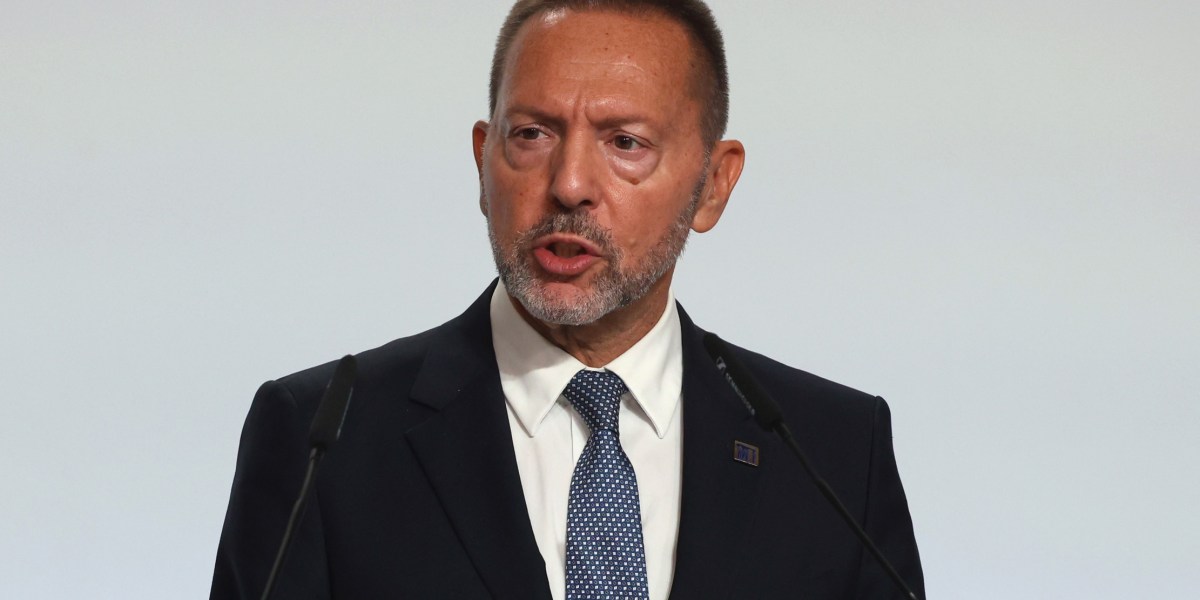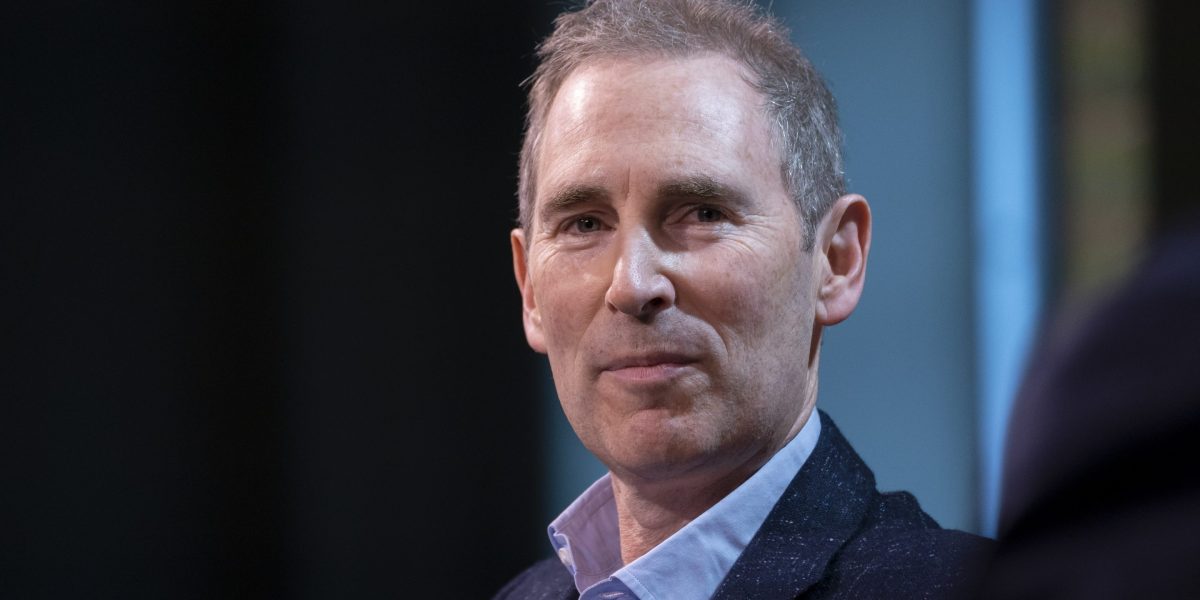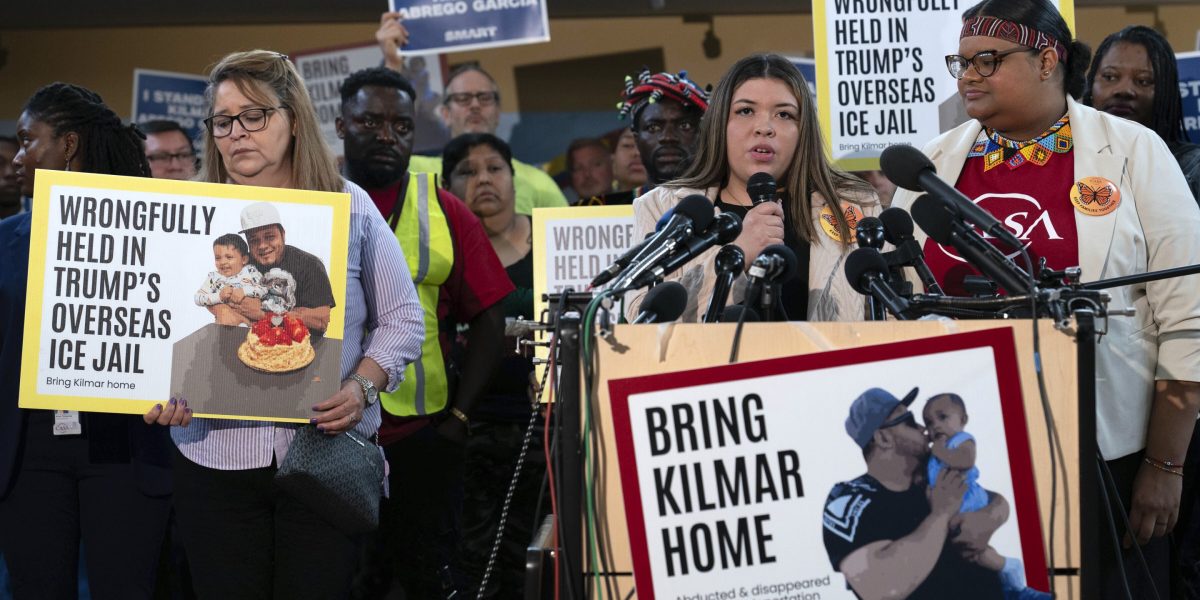The Trump administration is doubling down on its decision not to tell a federal court whether it has any plans to repatriate a Maryland man who was mistakenly deported last month and remains confined in a notorious prison in El Salvador, despite a Supreme Court ruling and lower court order that the man should be returned to the United States. The U.S. district court judge handling the case of Kilmar Abrego Garcia now is weighing whether to grant a request from the man’s legal team to compel the government to explain why it should not be held in contempt. Any move toward a contempt finding would represent an extraordinary turn in the Trump administration’s assertion of presidential authority, both generally and specifically over immigration policy.
The government’s latest daily status update, filed Sunday as required by Judge Paula Xinis, states essentially that the Trump administration has nothing to add beyond its Saturday statement that, for the first time, confirmed that Abrego Garcia, 29, was alive and remained in an El Salvador prison under the control of that country’s government. That means for the second consecutive day, the administration has not addressed Xinis’ demands that the administration detail what steps it was taking to return Abrego Garcia to the United States.
The U.S. Supreme Court ruled last Thursday that the Trump administration must bring him back. Xinis followed that with an order Friday requiring the administration to disclose Abrego Garcia’s “current physical location and custodial status” and “what steps, if any, Defendants have taken (and) will take, and when, to facilitate” his return.
The Trump administration has asserted that Abrego Garcia, who lived in the U.S. for about 14 years before being deported, is a member of the MS-13 gang. Abrego Garcia has disputed that claim, and he has never been charged with any crime related to such activity. The Trump administration has called his deportation a mistake but also has argued, essentially, that its conclusion about Abrego Garcia’s affiliation makes him ineligible for protection from the courts.
Abrego Garcia’s location was first confirmed to the court by Michael G. Kozak, who identified himself in the Saturday filing as a “Senior Bureau Official” in the State Department’s Bureau of Western Hemisphere Affairs. Sunday’s status update was signed by Evan C. Katz, who was identified in the filing as assistant director of Enforcement and Removal Operations for the U.S. Immigration and Customs Enforcement agency within the Department of Homeland Security.
Separately, Abrego Garcia’s lawyers have asked Xinis to issue an order compelling the government to explain to the court why it should not be held in contempt for failing to comply fully with previous orders. As of early Sunday evening, Xinis had not filed such an order.
Abrego Garcia’s lawyers also have asked Xinis to order the government, among other things, to produce documents and contracts that detail the U.S. agreement with El Salvador to house people deported from the U.S. or, in absence of such records, to require that government officials testify in court about the arrangement.
Xinis expressed frustration Friday during a hearing in her Maryland courtroom when a U.S. government attorney struggled to provide any information about Abrego Garcia’s whereabouts.
“Where is he and under whose authority?” the judge asked during the hearing. “I’m not asking for state secrets. All I know is that he’s not here. The government was prohibited from sending him to El Salvador, and now I’m asking a very simple question: Where is he?”
The judge repeatedly asked a government attorney about what has been done to return Abrego Garcia, asking pointedly: “Have they done anything?”
Drew Ensign, a deputy assistant attorney general, told Xinis that he had no personal knowledge about any actions or plans to return Abrego Garcia. But he told the judge the government was “actively considering what could be done” and said that Abrego Garcia’s case involved three Cabinet agencies and significant coordination.
Kozak’s statement a day later stated: “It is my understanding based on official reporting from our Embassy in San Salvador that Abrego Garcia is currently being held in the Terrorism Confinement Center in El Salvador. He is alive and secure in that facility. He is detained pursuant to the sovereign, domestic authority of El Salvador.”
The Justice Department has not responded to an Associated Press request for comment.
During his time in the U.S., Abrego Garcia worked construction, got married and was raising three children with disabilities, according to court records.
A U.S. immigration judge initially shielded Abrego Garcia from deportation to El Salvador because he likely faced persecution there by local gangs that terrorized his family. The Trump administration deported him there last month anyway, before describing the mistake as “an administrative error” but standing by its claims that he was in MS-13.
This story was originally featured on Fortune.com
Source link


 Entertainment8 years ago
Entertainment8 years ago
 Politics8 years ago
Politics8 years ago
 Entertainment8 years ago
Entertainment8 years ago
 Entertainment8 years ago
Entertainment8 years ago
 Tech8 years ago
Tech8 years ago
 Tech8 years ago
Tech8 years ago
 Tech8 years ago
Tech8 years ago
 Politics8 years ago
Politics8 years ago






